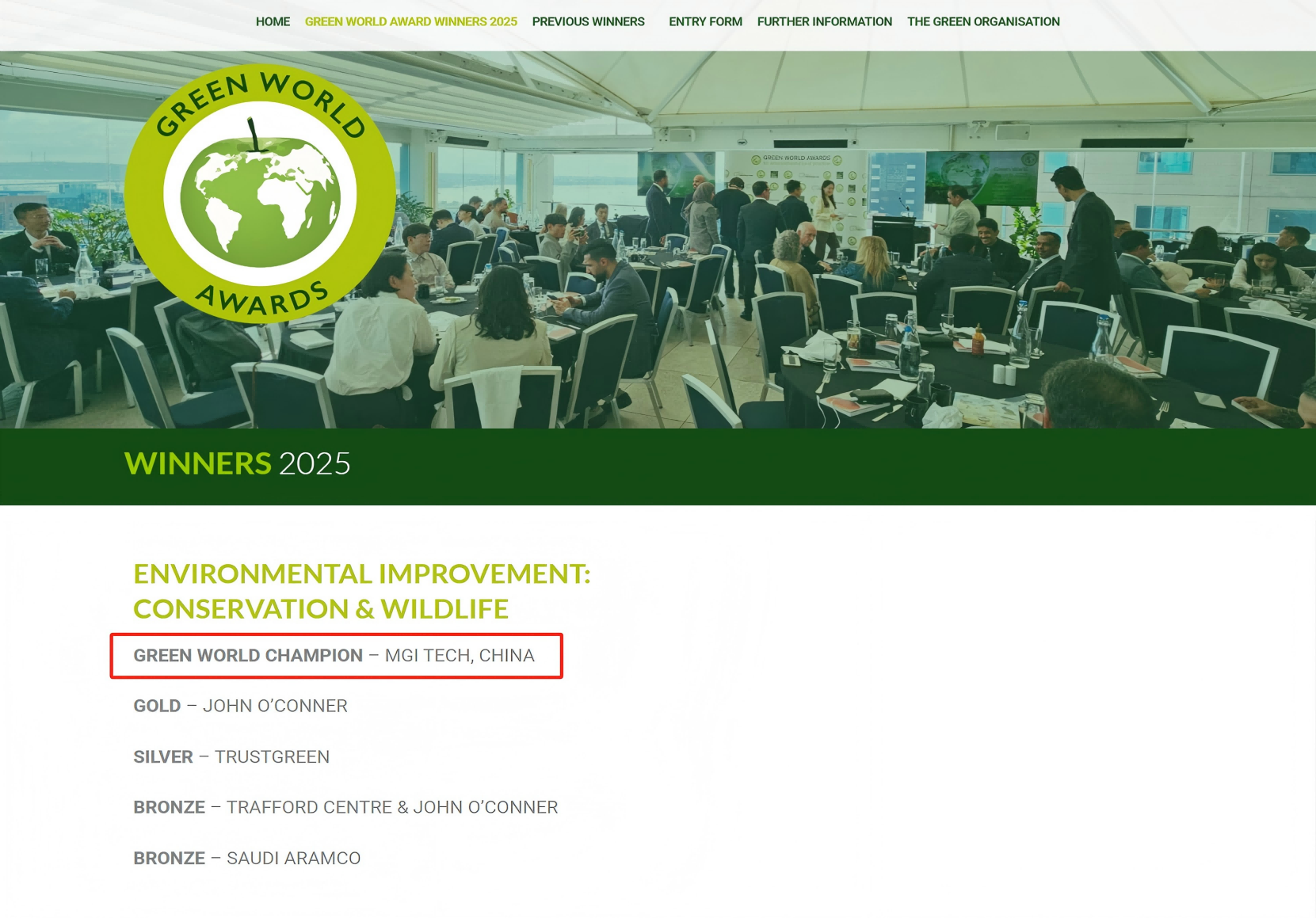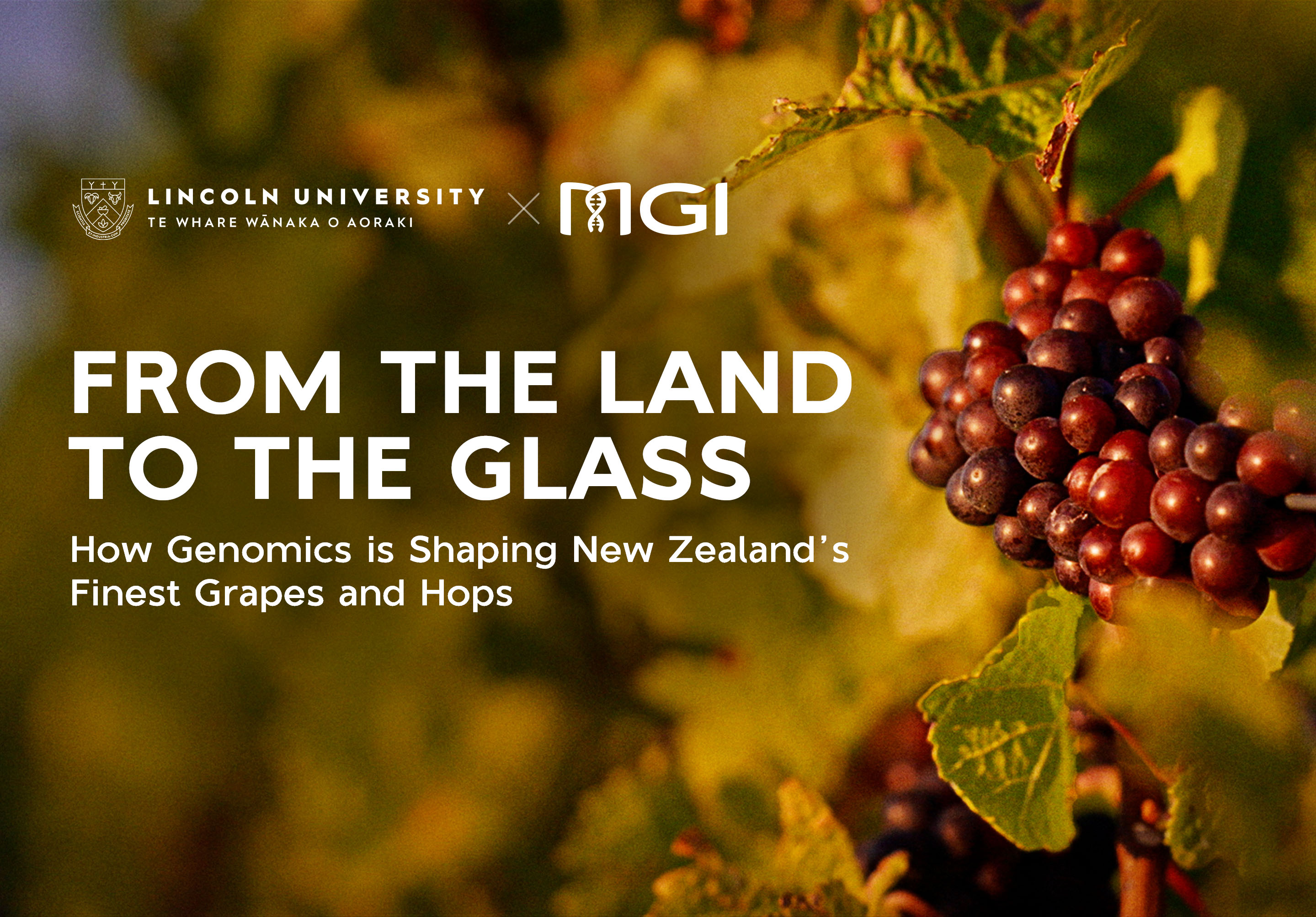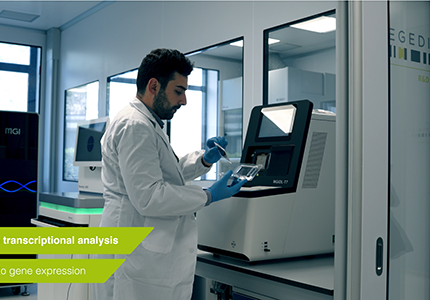Recently, a 7th person with HIV was reported probably cured and presented at the International AIDS Conference 2024. When it comes to HIV cure, we cannot ignore the efforts of African researchers in combating HIV. Decoding HIV Elite controllers("ECs") has been part of an objective for years in the significant HIV Host Genome project, while MGI's DNBSEQ™ technology has been employed in this project to reveal the natural control mechanism of HIV infection in ECs' bodies. We invited Shabangu Ntji, MGI's Field Application Scientist in Africa, to share her insights into the significant HIV Host Genome Project and the advancement of African HIV research.
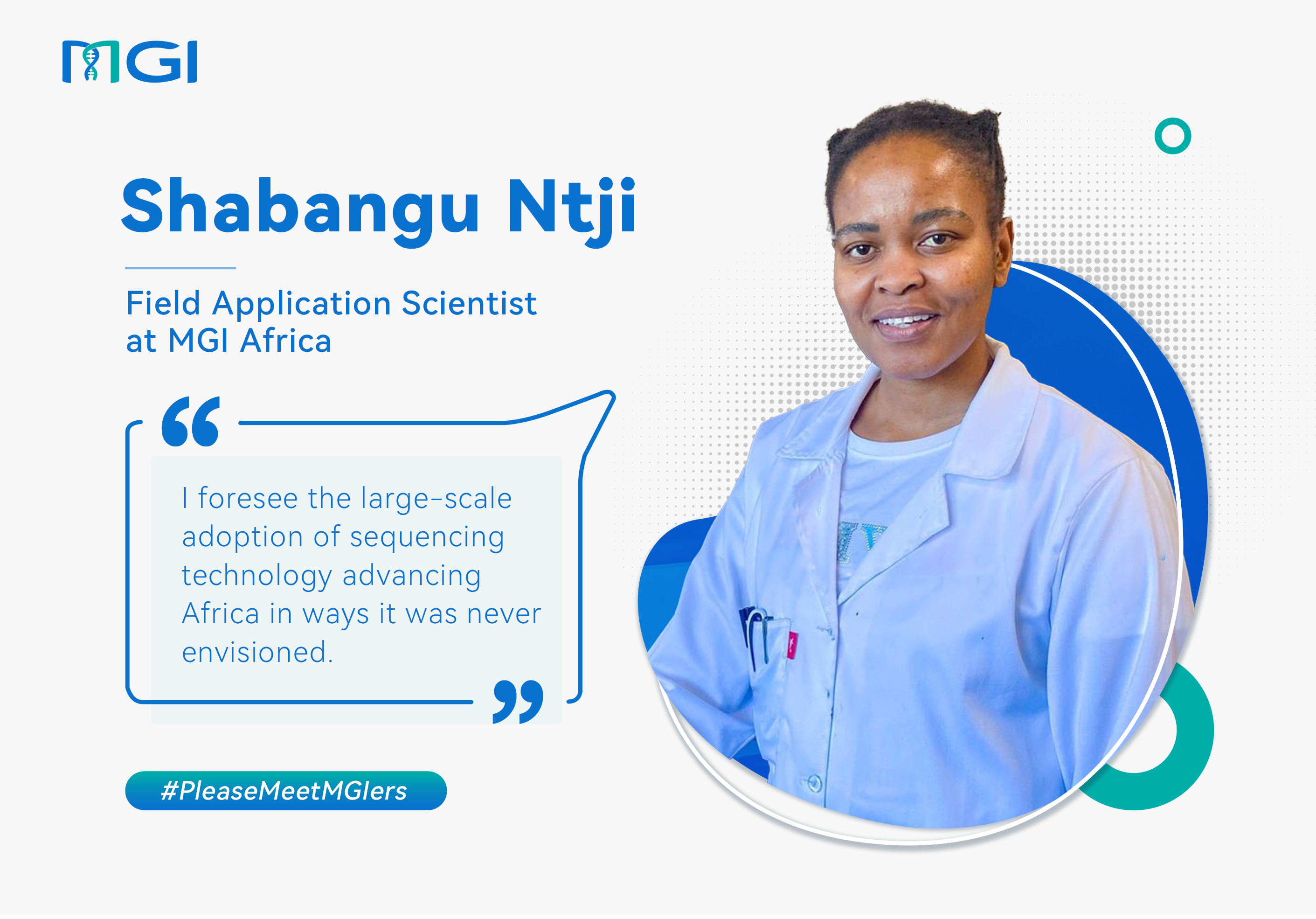
Q1: Would you please introduce yourself and your work at MGI?
My name is Ntji Shabangu, I am a Field Application Scientist for MGI in the sub-Saharan region, located in Cape Town, South Africa.
Q2: What motivates you to start your career journey in a biology-related field?
I started my career in zoology and researched veterinary tropical diseases, using genomics to understand pathogenic diseases of animal importance with the potential to spill over to humans. My interest started from there.
Q3: How do you see your role in HIV Host Genome Project to collaborate with the BD/sales/marketing team and contribute to the collaboration?
As an FAS, my role is to ensure the product that sales sell to a customer is used seamlessly and efficiently. This involves troubleshooting issues that arise during usage as well as ensuring service labs can reduce costs per sample by running enough samples per workflow. Ensuring their competitiveness in the market, through quality output and seamless operation of MGI solutions.

Q4: You published some papers regarding animal infections and specialized in sequencing technology for years before you joined MGI. Does any past experience help your work supporting the HIV Host Genome Project? If yes, could you please explain in detail the way your past experience helped?
Most diseases of animal importance are zoonotic in nature, HIV is one good example, the natural host of HIV-1 is chimpanzees occurring as Simian Immunodeficiency Virus (SIVcpz). In my research, I focused on a pathogen called Babesia rossi which occurs naturally in black-backed jackals, and spillover to domestic dogs causing clinical Babesiosis. With other variants of Babesia occur in humans, such as babesiosis caused by Babesia microti, which causes malarial-like symptoms in patients. Without knowledge of the genomics of a pathogen or virus, it would be difficult to design therapeutic solutions and we would not understand host response to infections, and in worse case scenarios we could misdiagnose and mistreat patients. Within the existing HIV host genome project my genomics background and experience are pivotal in supporting the experimental designs and sequencing of host genomes to elucidate the human evolutionary response to the virus within individuals of African descent.
Q5: What’s the challenge regarding implementing HIV Host Genome Project? What are the unique strengths of MGI’s NGS technology in addressing the challenge of the project from your perspective?
Africa has the highest rate of HIV infections. To be able to speed up the understanding of the human genome response to the virus, we would need to speed up the sequencing of individuals of African descent. This would require a seamless, cost-effective, and quality sequencing technology with the shortest turnaround time. MGI’s innovative sequencing technology that utilizes DNBSEQ is the most effective solution owing to its unique quality in ensuring the synthesis of good quality libraries and sequencing at the speed of light, with instruments such as DNBSEQ-G99 offering turnaround times of less than 12hrs for PE 150. This is the much-needed solution to meet the clinical diagnostic needs in the global south.
Q6: How do you see the sequencing technology evolving in Africa and contributing to local HIV research, especially in HIV Host Genome Project?
In the context of the HIV host Genome project, we are all aware that the world human genome sequenced thus far only comprises 2% of the African human genome. Leveraging on DNBSEQ sequencing technology, we can expedite the sequencing of the human genome for individuals of African descent, which will capacitate the efforts for a holistic response to disease control & eradication measures. This solution is not only limited to providing solutions to HIV, but it would scale up the understanding of our biodiversity, offering solutions to drought response in agriculture and beyond. This is the type of holistic thinking we need to adopt, not only to cater to the cure of diseases but to ensure individuals have access to nutritious meals all year round to have the right immune response to infections.
Q7: What recent advancements or trends have you observed in local HIV research?
The human immune control of HIV. The University of KwaZulu Natal, AHRI, and SAMRC have embarked on a great project of understanding elite controllers with the objective of contributing to the development of therapeutics that look at the relationship between pediatric non-progressors and their parents who are HIV positive. This kind of project is key to uncovering genetic differences in human immune control of HIV.
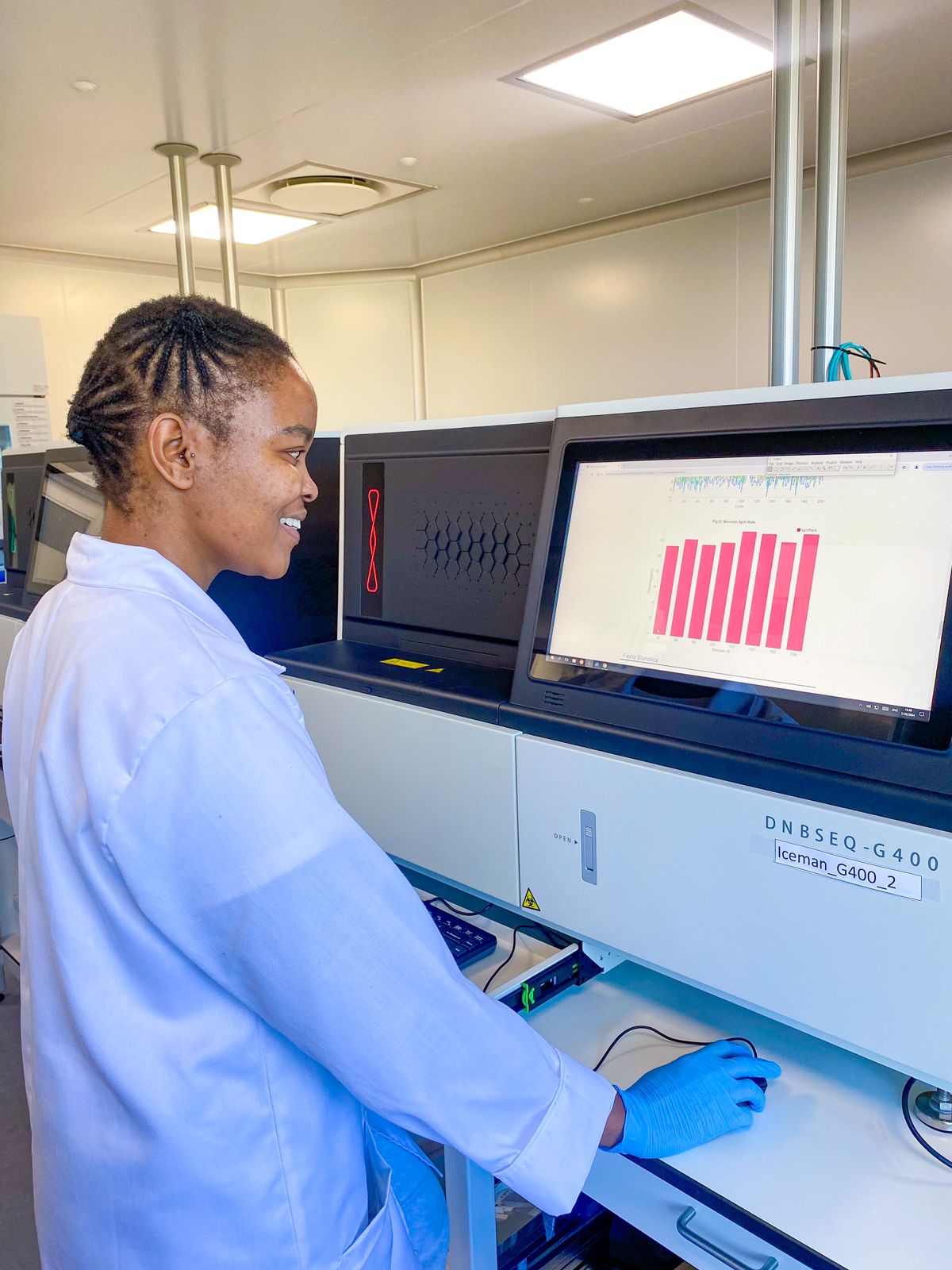
Q8: This project has laid the groundwork for National 110K Human Genome Project in South Africa, how MGI can better empower the ecosystem by streamlined workflow?
MGI offers streamlined full solutions, from sample preparation to sequencing and data analysis. Not only in HIV but also in TB. Many other third-party solutions have partnered with us to provide our customers with a complete solution for their sequencing needs. We are more than ready to provide South Africa with the full package to undertake the 110K Human Genome Project and expedite the advancement of developing targeted interventions and cures– not only for HIV – but many other diseases.
Q9: What specific challenges or opportunities do you see in leveraging sequencing technologies for HIV projects in Africa, considering factors such as infrastructure, funding, and collaboration?
Africa as a developing economy still falls short in areas of skills development, brain drain of the skilled labor force, infrastructure development, and many other known rhetorics discussed across developmental platforms that wish to enhance the advancement of the global south. It’s no doubt that determination exists across the continent, with advancements such as the African BioGenome Project, the Africa Pathogen Genomics Initiative, and the African Union Development Agency amongst others, that have established strong systemic platforms that feed into all areas of development, from the science to the technology, the policy, value-chain etc. You don’t need to be in Africa to contribute to the advancement of the African economy. We have witnessed many public-private collaborative initiatives that are trans-disciplinary to advance the realized potential of genomics in the global south.
Q10: What are the major challenges for African people living with HIV? What do you think should be done to improve their situations?
The main challenge for individuals living with HIV is knowledge. The stigma that exists is a result of a lack of advanced knowledge about living with HIV. Initiatives such as the HPP (HIV pathogenesis program) are key to tackling socio-economic issues, as well as teaching individuals living with HIV how to maintain a healthy lifestyle, in collaboration with clinicians, researchers, and psychologists. It is a good model for a holistic support system for individuals living with HIV and should be scaled across the continent as a model of good practice.
Q11: As a female professional, what do you think are the difficulties faced by African women today? What’s your advice to improve African women’s situations?
Contrary to popular belief, in South Africa as an example, the majority of trained scientists emerging from institutions of higher learning are females. The narrative has changed, science will no longer be a male-dominated industry. In the future, we would need to balance the scale by encouraging males to take up careers in industries such as biotechnology and genomics. African women should continue believing in themselves and taking up space in science and other disciplines where they are less represented.
Q12: What’s your outlook for the future of sequencing technology in Africa?
Africa is rich in biodiversity. I foresee the large-scale adoption of sequencing technology advancing Africa in ways it was never envisioned. It will accelerate new value chains in areas such as therapeutics, that can emerge from the knowledge of Omics.
Q13: Aside from work, what do you do in your spare time?
I enjoy reading social science and policy-related work, and translating science to key decision-makers is something I feel needs to be done.



 Sequencer Products: SEQ ALL
Sequencer Products: SEQ ALL














 Technologies
Technologies Applications
Applications Online Resources
Online Resources Data Bulletins
Data Bulletins Service & Support
Service & Support Introduction
Introduction Newsroom
Newsroom Doing Business With Us
Doing Business With Us Creative Club
Creative Club








